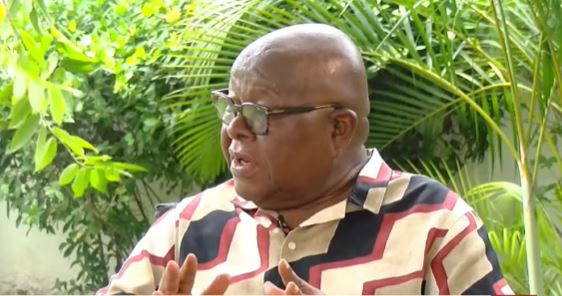CJ Suspension: Once the president decides you should go, you’re out – Prof Mike Oquaye – Nsemkeka
Former Speaker of Parliament, Professor Aaron Mike Oquaye, has raised concerns about the process used to evaluate petitions against high-ranking judicial officials, cautioning that the current system lacks transparency and may undermine fundamental human rights.
In an exclusive interview with JoyNews on Thursday, May 8, Prof Oquaye questioned the neutrality of committee members appointed to investigate such matters, suggesting that personal affiliations could override the facts presented.
He explained that the current process for suspending a sitting Chief Justice risks concentrating excessive power in the hands of the president, stating that, “once the President decides you should go, you are on your way out,” he said.
Prof Oquaye’s comment comes amid ongoing controversy surrounding a petition for the removal of Chief Justice Gertrude Torkornoo.
He questioned the fairness and transparency of the disciplinary mechanism, particularly the influence the president wields in triggering the process.
“I don’t know why, very often, we don’t analytically recall historical events,” he said, urging Ghanaians to examine the long-term implications of such procedures.
The former Speaker’s comments come amid national debate over a petition to remove Ghana’s Chief Justice.
He expressed dismay over how the matter has unfolded publicly, including media leaks and questions over due process.
While declining to comment on specific facts of the petition case, he emphasised the need for a principled discussion on the fairness of the process.
“What I am very much keen upon is exactly the issue that I’ve discussed, and it must be resolved as a preliminary issue,” Prof Oquaye said.
“If you were to put me in such a trial, I wouldn’t go and I wouldn’t plead, I wouldn’t say anything.”
He criticised the notion of closed-door disciplinary proceedings, describing them as akin to a “star chamber court” and inherently unjust.
“Nobody wants a secret trial, even in our traditional system, which is guaranteed by this constitution,” he noted, adding that, unlike other judicial staff who can appeal disciplinary actions, the Chief Justice in this process has no such recourse.

